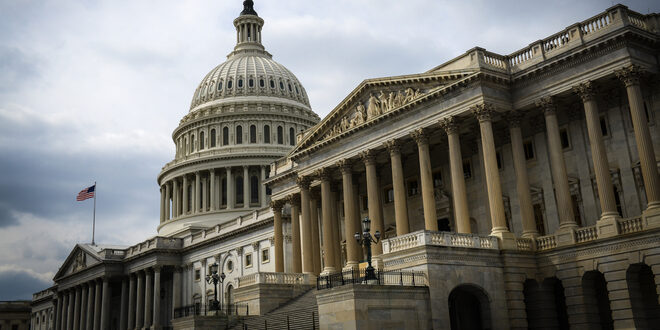California Congressman Tom McClintock (CA-04) and 11 members representing western states introduced legislation designed to reform water policy in the west earlier this week.
The bill, H.R 5217, streamlines water districts’ contact renewals, expedites water transfers and gives the Secretary of the Interior discretion to modify dam operations in the Central Valley Project (CVP) to provide reasonable water flows of suitable quality, quantity and timing to protect migrating fish.
“Western water policy is a bureaucratic nightmare designed to delay and deny the storage, delivery and use of our abundant water by farmers and residents. Environmental groups have used the law to block construction on new reservoirs, resulting in man-made droughts that have devastated entire communities. This legislation provides a common-sense approach to allowing water to flow quickly and efficiently to the communities that need it, while maintaining environmental protections,” McClintock said.
“Water is the lifeblood of the Central Valley; it helps us sustain California’s farmlands and keep our position as a top agricultural producer worldwide,” said co-author and Republican Leader Rep. Kevin McCarthy (CA-23). “To ensure that Californians continue to receive the water they contract and pay for while protecting the environment, my colleagues in Congress and I successfully enacted the WIIN Act in 2016 – the first update to California water policy in over a decade. To build on this, the Water Optimization for the West (WOW) Act would extend critical provisions of the WIIN Act that help deliver water to the Central Valley. This new bill also includes the RAILWAY Act to repurpose unused funds from California’s failed High-Speed Rail towards desperately-needed water storage infrastructure projects that will benefit Californians far more than a train to nowhere. I am grateful to Water, Oceans, and Wildlife Subcommittee Ranking Member McClintock for introducing the WOW Act and for his continued leadership to help ensure the Central Valley’s families and agricultural community’s access to water remains protected.”
The legislation also:
- Repeals the San Joaquin River Settlement. The legislation lays out a definitive plan to provide restoration flows to the river without harming CVP contractors.
- Establishes the Bureau of Reclamation as the lead for coordinating all reviews, permits, licenses, or other approvals or decisions (reviews) required under federal law to construct new surface water storage projects in the states covered under the Reclamation Act on lands administered by the Department of the Interior or Department of Agriculture.
- Amends the Endangered Species Act of 1973 to transfer the responsibility for administering the Act from the Commerce Department’s National Marine Fisheries Service (NMFS) to the Department of the Interior’s U.S. Fish and Wildlife Service.
The bill has been referred to the Committee on Natural Resources, and to the Committees on Transportation and Infrastructure, Agriculture, and Science, Space, and Technology.
 California Water News Daily Your Source For Water News in California
California Water News Daily Your Source For Water News in California


